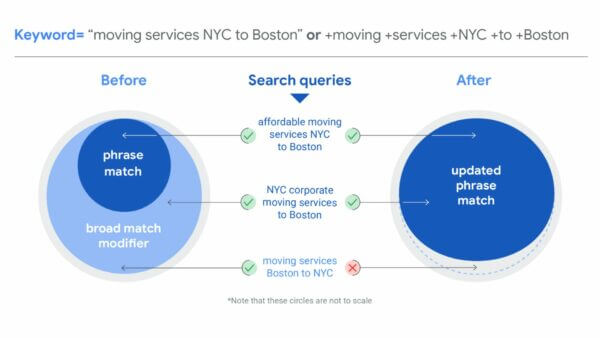Attributes, like bid and status, can still be edited, but you’ll have to convert to phrase match if you want to edit the keyword text.
We were warned. When Google Ads first announced that it was expanding phrase match to include BMM traffic, the company also stated that after the new behavior rolled out worldwide, advertisers would not be able to create new BMM keywords. However, advertisers can still edit attributes of their BMM keywords, like status or bid, but editing keyword text will require changing the keyword to phrase match.
Google’s tools and tips to transition your keywords. Google recommends consolidating duplicate keywords and switching your BMM keywords to a different match type so that it’s easier to manage your account in the future.
To help identify redundant keywords, a “Remove redundant keywords” recommendation may appear on the Recommendations page when a keyword also exists as phrase match in the same ad group.
Bulk editing tools to convert BMM keywords have also been added to Google Ads and Google Ads Editor. Advertisers can learn more about these bulk editing tools under the “Should I convert my BMM keywords to phrase match?” section of the Google Ads Help Center.

When a BMM keyword is converted, it is removed and a new keyword in the designated match type is created. This means that the new keyword’s statistics will start from scratch, but advertisers will still be able to view the historical performance metrics of the removed BMM keyword.
Why we care. This seems to be the final step in ending support for BMM keywords. Advertisers still adding new keywords with this match type will need to transition to a different match type come late July.
Since existing BMM keywords are already being treated under the expanded phrase match behavior, it’s a good idea to convert your keywords if you haven’t already. This will enable you to start gathering new keyword stats sooner rather than later and it may make account management easier because you’re no longer working with a deprecated match type.



